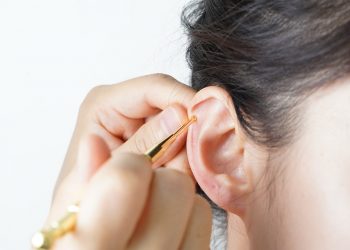Contents
5 Benefits of Onion Juice for Ears You Need to Know
It’s not unusual to feel discomfort in your ears; whether it’s from an infection, wax build-up, or seasonal allergies. For many, traditional remedies can sometimes miss the mark. Enter onion juice—a not-so-common yet intriguing option people are exploring for ear health. Before brushing it off as just an old wives’ tale, consider that onions have been used in various cultures for their medicinal properties.
But the question remains: can onion juice actually benefit your ears? Here, we’ll explore five potential benefits, grounded in evidence and practical use, while remaining candid about the limitations.
1. Antimicrobial Properties
Infections of the ear can lead to a range of discomforts, and the notion that onion juice might help is rooted in its natural antimicrobial properties. Scientifically, onions contain compounds like quercetin and sulfur, which possess antibacterial characteristics that may help combat infections.
For instance, a study published in the Journal of Ethnopharmacology highlighted the antibacterial activity of onion extracts against common pathogens responsible for ear infections (Patel et al., 2018). This suggests that applying a few drops of onion juice may create an inhospitable environment for harmful bacteria. However, while using onion juice may provide some relief, it should not replace medical treatment for serious infections.
2. Natural Decongestant
When your ears feel blocked, it can sometimes be due to sinus congestion. Onion juice might offer a natural solution as a decongestant, helping to clear nasal passages and alleviate pressure in the ears. Onions release sulfur compounds when crushed, which may help thin mucus and promote drainage.
A relevant study published in the International Journal of Pharmaceutical Sciences and Research found that onion juice could be effective in alleviating symptoms related to colds and sinus issues (Khan et al., 2015). Although there’s no direct connection to ear health, easing congestion can indirectly reduce ear discomfort.
It’s essential to recognize that while onion juice can be soothing, it may not work for everyone. If sinus issues persist, consider consulting a healthcare provider for more targeted treatments.
3. Anti-Inflammatory Effects
Inflammation plays a key role in many ear conditions, particularly during infections. Onion juice’s anti-inflammatory properties stem from its high levels of quercetin, which has been shown to reduce inflammation. According to a research review in the Nutrients journal, quercetin helps stabilize mast cells, which are involved in allergic responses and inflammation (Böcker et al., 2018).
Applying diluted onion juice may help soothe inflamed areas around the ear, although the effects could vary. While this remedy may provide temporary relief, it is crucial to remember that persistent inflammation can indicate a more serious underlying issue that requires medical attention.
4. Hearing Protection
While the idea of using onion juice directly for hearing protection might sound unconventional, some believe it can help protect ear health over time. Regular consumption of onions, known for their antioxidant properties, may help reduce oxidative stress—an important factor in maintaining healthy hearing.
A literature review in Frontiers in Aging Neuroscience discusses the role of antioxidants in preserving hearing function and preventing age-related hearing loss (Kumar et al., 2021). While specific research on onion juice and hearing protection is lacking, the overall benefits of antioxidants are well-documented. Thus, incorporating onions into your diet may be beneficial for your ears in the long run.
5. Easing Earwax Build-Up
Earwax buildup can cause discomfort and even temporary hearing loss. Some advocates recommend onion juice for softening earwax, making it easier to expel naturally. The sulfur compounds in onions may assist with this process, theoretically breaking down the waxy buildup.
A small study from the British Journal of General Practice noted that certain home remedies could aid in earwax removal, although the specific effectiveness of onion juice was not thoroughly investigated (Nash et al., 2016). To use onion juice for this purpose, you could apply a few drops into the ear canal, allowing it to sit for a short time before draining. However, excessive use could lead to irritation, so moderation is key.
Caveats and Considerations
While onion juice holds potential benefits for ear health, there are important considerations to keep in mind. Firstly, the application of onion juice should always be performed with caution. It is advisable to dilute the juice with water or another base oil to reduce the risk of irritation. Secondly, if you have a known allergy to onions, using onion juice is unequivocally not recommended.
Moreover, while home remedies can offer temporary relief, they are not a substitute for professional medical advice. If you experience severe pain, hearing loss, or persistent symptoms, reaching out to a healthcare professional is imperative.
FAQ Section
1. How do you prepare onion juice for ear use?
To prepare onion juice, begin by peeling and finely chopping an onion. Next, use a juicer or blender to extract the juice. Strain the liquid to remove any solid particles, and dilute it with an equal amount of water. Use a dropper to apply a few drops into the ear, but be careful not to use too much.
2. Can I use onion juice daily for ear health?
While onion juice may offer some benefits, it is essential to use it sparingly. Daily use may lead to irritation or adverse effects. It’s best to consult with a healthcare provider for personalized advice.
3. Does onion juice have any side effects?
Potential side effects of onion juice may include irritation of the skin or ear canal, especially if used undiluted. Allergies to onions can also result in adverse reactions. Always conduct a patch test before applying it to sensitive areas.
4. Are there any alternatives to onion juice for ear health?
Yes, there are various alternatives such as warm olive oil, garlic oil, or over-the-counter ear drops specifically designed for earwax removal. However, it’s crucial to consult with a healthcare professional before trying new remedies.
Conclusion
The exploration of natural remedies for ear health often leads to surprising candidates, like onion juice. While research has uncovered various benefits—ranging from antimicrobial properties to potential earwax removal—it’s important to approach these remedies with care. Always consider your individual health needs, and consult healthcare professionals when necessary.
Incorporating onion juice into your routine may provide some temporary relief, but it’s essential to monitor how your body reacts. As with any remedy, balance and conscientious use are key.
Get Your FREE Natural Health Guide!
Subscribe now and receive our exclusive ebook packed with natural health tips, practical wellness advice, and easy lifestyle changes — delivered straight to your inbox.














